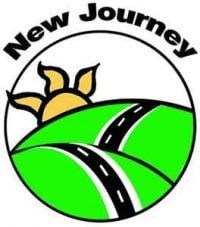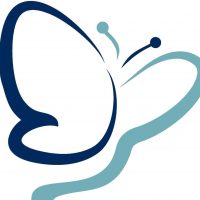Pathways
Drug Rehab Center in Annapolis, Maryland
Pathways is an accredited addiction treatment facility located in Annapolis, Maryland that provides a variety of levels of care, such as aftercare support, drug rehab, dual-diagnosis, inpatient, intensive outpatient, outpatient, partial-hospitalization, and detox, and accepts private health insurance.
About This Annapolis, MD Facility
Pathways is an addiction treatment facility located in Annapolis, Maryland that offers comprehensive care for those suffering from opioid addiction, substance abuse, and dual diagnosis. They provide a variety of levels of care, such as inpatient, intensive outpatient, outpatient, partial hospitalization, and detox. The facility is accredited by The Joint Commission (JCAHO) and accepts private health insurance as payment.
At Pathways, individuals have access to a variety of services specific to addiction and substance abuse. These services include drug rehab, aftercare support, and dual diagnosis. Additionally, their certified and experienced staff is dedicated to providing evidence-based care tailored to the individual needs of each patient. Clients also have access to medication-assisted treatment and other evidence-based therapeutic interventions which addresses the physical, emotional, and social aspects of addiction.
Genders
Ages
Modality
Additional
Accreditations

JCAHO
Conditions and Issues Treated
Substance abuse is the excessive use of any type of drug. This includes alcohol, medications and illegal drugs. Substance abuse is treated with a combination of physical and mental treatments. Pathways patients detox and follow up with therapies that target the underlying cause of the addiction.
Opioid addiction is one of Maryland‘s most prominent forms of addiction. Drugs, including heroin, oxycontin, and fentanyl, are the most common. To relieve pain, or ease other ailments, they are professionally prescribed, but they are often abused because they and the feelings they give are addictive.
Addiction is treated by detoxifying the body, so the medications’ chemicals are no longer impacting the individual. Pathways offers therapies to correct behavior and target the root of the problem are supplemented during and throughout treatment.
Some of the most common co-occurring disorders are schizophrenia, depression, and bipolar disorder. Most rehab facilities in Annapolis, MD like Pathways provide patients with a dual diagnosis. Dual diagnosis gives rehab the means to treat addiction while restoring mental and emotional health.
Levels of Care Offered
This center offers a variety of custom treatment tailored to individual recovery. Currently available are Aftercare Support, Detox, Drug Rehab, Dual-Diagnosis, Inpatient, Intensive Outpatient, Outpatient, Partial-Hospitalization, with additional therapies available as listed below.
Detox treatment begins when the patient leaves their surroundings of family and friends, which is usually when they are most vulnerable. Being in a safe environment surrounded by medical professionals provides them with the safety net many of them need to get over their addiction. With kind and caring staff members, patients can feel relaxed, and they will need to start by admitting that they have a problem in order to get better.
If a person goes through detox treatment, they will understand their addiction better, and they won’t want to relapse and lose all the benefits of sobriety. They can see the effects of using drugs and how it makes them feel, which will make them want to quit their addiction.
Drug detox is vital to the recovery process, and it ensures that a patient will be in a safe environment during their withdrawal.
An inpatient is a person who stays in a hospital or rehab center during treatment. For alcohol- and drug-dependent individuals, inpatient rehabs provide individualized around-the-clock services. Inpatient treatment programs address a person’s unique physical, medical, and psychological needs. A team of experts assess the severity of the addiction and design a highly tailored program. typically, the length of stay in an inpatient facility in Annapolis, MD is 30 days. Those with severe addiction may need to stay at the facility for 60 to 90 days.
Intensive outpatient programs mostly conduct meetings on weekdays. Group therapy is the main element in most intensive outpatient programs. Most IOPs last for about 90 days and include drug use monitoring and testing. A Maryland IOP, like what’s offerd at Pathways, take much more time than a standard outpatient program. Some programs offer other services as well, such as employment assistance and medication management.
Outpatient rehabilitation is a treatment that exists if a patient is not checking into Pathways long term. In addition to helping them recover, the patient attends regular therapy sessions and detox and participates in other therapies. However, this is all primarily done from home. As a follow-up to inpatient treatment, outpatient treatment is usually recommended.
After rehabilitation, it helps people return to their everyday lives. It may also be an alternative to inpatient care in some situations. If they cannot leave their jobs, children, or don’t have the money for inpatient care, people can choose this method. Inpatient therapy, however, is the best method and most suggested level of treatment offered by Pathways in recovering from addiction.
The halfway point between inpatient and outpatient care is Pathways‘s Partial Hospitalization Program. It is for individuals in Maryland who struggle with addiction but do not need treatment round the clock. Patients may reside in a recovery facility anywhere from 18 to 30 hours per week, but they can sleep at home. The program length could be anywhere from one to six months.
Pathways‘s Therapies & Programs
Substance abuse does a number on an individual’s relationship with other people, particularly in marriage. Spousal relationships bear the brunt of alcohol and drug dependence. Therefore, it becomes critical to submit the relationship to couples therapy to prevent straining it further. Most programs only zero in on the individual with substance addiction without factoring in the importance of the other half’s emotional support.
However, some facilities, like Pathways in Annapolis, Maryland, offer couples therapy options to manage intimate partnerships amid the recovery process. Other couples-focused treatment plans can provide the patient and their partner tools to get things back to normal, support each other, and the patient’s sobriety.Group Therapy is a type of counseling that occurs between a bunch of strangers. These groups are suitable for patients who are not confined in a treatment facility, but group sessions are also common in inpatient rehab programs. Group therapy is led by a trained individual at Pathways in Annapolis, MD and consists of members from different stages of recovery.
The goal of group therapy sessions is to foster hope and a sense of belonging, share information, and learn coping mechanisms. It also helps to have people who can relate to what you’re going through. Good behaviors can also be contagious, and participants can learn from one another.
Unresolved trauma is often a key reason why many patients resorted to substance abuse. Trauma could be physical abuse, sexual abuse, war, natural disasters, divorce, accident, loss of a loved one, etc. If trauma is the primary cause of substance abuse, then both issues must be addressed.
Cognitive Behavioral Therapy (CBT) is an approach and method in psychotherapy. Pathways asks people to investigate how their thoughts, including habitual, negative, and inaccurate ways of thinking affect behaviors. CBT is based on the idea that rigid, inflexible ways of thinking cause people to have a limited ability to cope with stress
The 12-step program is a part of substance abuse treatment offered at Pathways. It was initially developed by the founders of Alcoholics anonymous. The program provides the benefit of cognitive restructuring. It refers to the process of change in the negative thoughts that leads to long-term benefits.
Payment Options Accepted
For specific insurance or payment methods please contact us.
Is your insurance accepted?
Ask an expert, call (888) 674-0062
Additional Details
Specifics, location, and helpful extra information.
Annapolis, Maryland 21401 Phone Number(410) 573-5400 Meta DetailsUpdated November 25, 2023
Staff Verified
What else do people call Pathways?
People have occasionally also searched for “Pathways Alcohol/Drug Treatment Ctr in Maryland”
Patient Reviews
There are no reviews yet. Be the first one to write one.
Annapolis, Maryland Addiction Information
For the past decade, Maryland's rate of drug use and abuse has significantly increased. The overdose rate is currently higher than the national average. This epidemic is due to the many industries where manual labor is required. As soon as prescription opioids were more readily accessible a large part of manual workers started using–and eventually abusing–the painkillers.
4,000 people are living in Annapolis, Maryland who struggle with drug or alcohol addiction. About 36% of all drug-related arrests in Annapolis involve prescription drugs. 45% of drug addicts began using them before the age of 18. Numerous drug dealers are operating in the city and drugs can be purchased easily on the street. Despite these challenges, help is available. Drug treatment centers in Annapolis can provide the necessary support.
Treatment in Nearby Cities
- District Heights, MD (19.7 mi.)
- Barstow, MD (31.5 mi.)
- Thurmont, MD (63.9 mi.)
- Pasadena, MD (9.0 mi.)
- Princess Anne, MD (71.2 mi.)
Centers near Pathways
The facility name, logo and brand are the property and registered trademarks of Pathways, and are being used for identification and informational purposes only. Use of these names, logos and brands shall not imply endorsement. RehabNow.org is not affiliated with or sponsored by Pathways.










